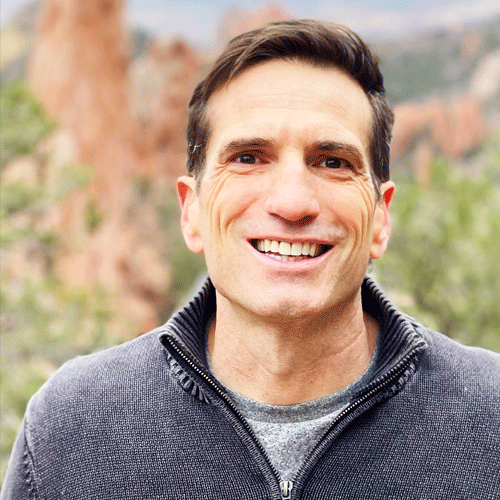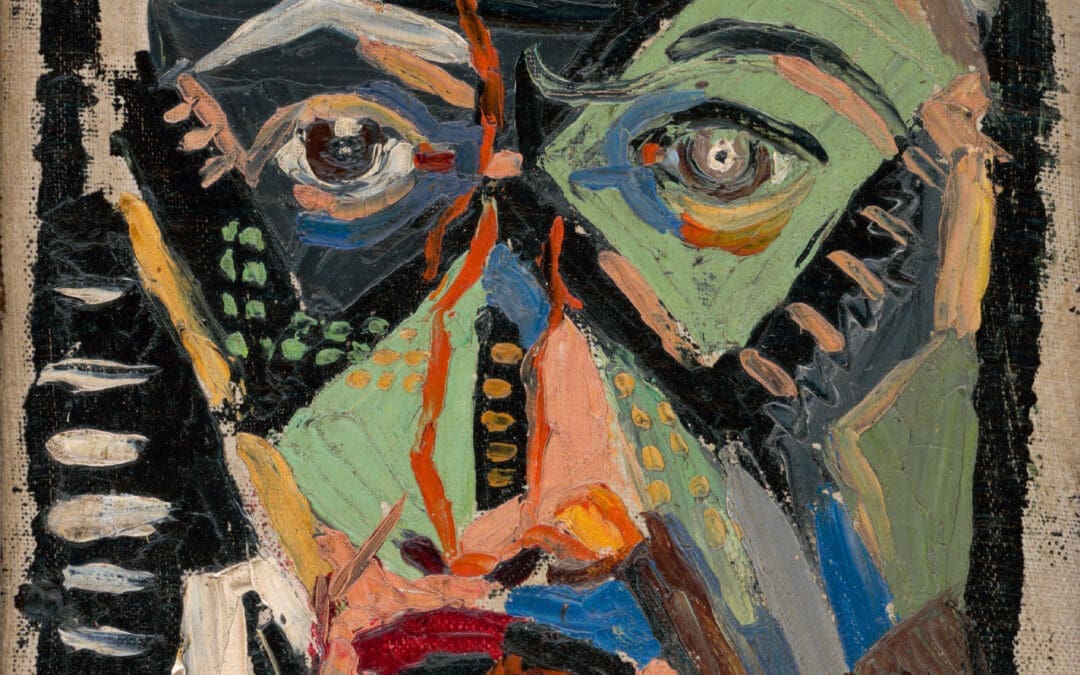Washington, D.C., has a brutal way of taking idealism in its hands. It can be like a grizzled prizefighter with few scruples squaring up against a grinning lad whose punch is less potent than his dreams. Many return home in short order, missing teeth and cursing the blend of hope and vanity that led them to enter the ring. Those who stay can end even worse, becoming the gnarled pugilist they came to defeat—in the words of a common lament, they came to change the city, but the city changed them.
Yet there are exceptions. When I think of friends in Washington who’ve remained vibrant despite long, slow, and often disappointing struggles to extend justice, it strikes me that a common theme in their convictions is a well-developed sense that they are seeking proximate justice. Whether or not they use those words to describe it, the vision presented so well in Steven Garber’s article “Making Peace with Proximate Justice,” captures the tension such individuals have embraced. In short, they lead lives and vocations that remain committed to lofty objectives despite inescapably alloyed outcomes.
However, a question remains: Is peace with proximate justice really just an artful way of “settling”? Is its patron saint a smartly-clad Fortune 500 lawyer whose cherry wood desk displays a faded photo of himself at Woodstock, holding a scrawled sign, “Fight Corporate Greed”? Are we accepting a utilitarian ethic that is content to fudge high ideals further and further until it wakes up to see Machiavelli in the mirror?
At first glance, I almost thought so. But the more I’ve pondered Garber’s article, the more I’ve become convinced that just the opposite is true. Peace with proximate justice may be the only thing that can keep us from settling. More specifically, it nurtures specific virtues needed to persist in seeking justice for the long haul in places like Washington, D.C.
Confident, yet humble
Inherent in the concept of proximate justice is the conviction that although we will never achieve it fully a real standard of justice does exist. Thus, simply to discuss proximate justice is to defy the relativizing juggernaut of postmodern thought. Justice is not merely a matter of personal preferences. Our yearning to “set things right” is a confirmation that a standard of rightness exists to which things can be set. So we can act boldly against human trafficking, exploitation of children, and other wrong-doing—knowing that the revulsion they elicit from us is not merely a subjective antipathy, but a reflection of a far greater Law that is inscribed on our hearts.
At the same time, even while enabling vigorous action against injustice, the idea of proximate justice short-circuits the arrogance and self-righteousness that often come with it. While affirming that a transcendent standard exists, proximate justice underscores the imperfect nature of our capacity to understand, apply or achieve it. In the words of the Apostle Paul, “now we see but darkly.” To seek proximate justice is to admit a murky view, but still act decisively upon the contours of right and wrong that we discern in the twilight.
Perhaps no Washington, D.C., resident modelled this tension better than Abraham Lincoln. He acknowledged, perhaps more than any other world leader in history, that his own understanding of God’s will was frail and finite. Yet he led America into its most painful and costly conflict with injustice, never shrinking from his conviction that slavery was an affront to both man and God. His words could be the banner of proximate justice: “with firmness in the right, as God gives us to see the right.”
Hope without illusion
The recipe is simple: illusions + time = disillusionment. Of course, we all harbor some illusions, and none more than those who wish to better the world. We seek change, and—despite knowing better—are continually drawn to anticipate that it will be rapid, sweeping, and unalloyed. Far more likely, if change occurs at all, it will be slow, incomplete, and rife with unintended consequences. Disillusionment is virtually guaranteed for activists, pilgrims, and all others who “hunger and thirst for righteousness.”
I think of a man who started his career in Washington working for one of the more liberal members of the Senate. The Senator was a man lionized as a champion of the poor and oppressed. Personal interaction, however, left the young believer to conclude with bitterness that his former hero was a fraud. It wasn’t long before he threw himself with equal vigor into conservative activism, hoping to advance good causes from the other end of the political spectrum. But after several years, he came to feel that many of the powerbrokers on the Right did not share his passion for justice. So he turned most of his energies to exposing what he perceived as hypocrisy and hard-heartedness in former colleagues. One cannot help but wonder if his latest efforts in collaboration with the emerging religious Left will not lead to similarly disheartening places.
In contrast, I recall a friend who, as a young pastor in Guatemala, was turned out by his own congregation because he sought to integrate the church with lower-class Mayas. Despite the anguish of that experience, he and his wife poured the bulk of their lives into serving Guatemala’s poor: sometimes in cooperation and at other times in conflict with the established church in Guatemala. It still strikes me how in describing the story of his first congregation, while his words leveled a righteous anger at the fact of the injustice, his voice and eyes carried sweetness and grace—even towards those who’d wronged him.
Part of this, of course, is Christ-like forgiveness. But it is also true that bumps, bruises, and outright failures in pursuit of justice will be far less disillusioning if our illusions are minimized at the front end.
Peace with proximate justice does not undermine hope; in fact, it demands it—we believe things can be better than they are. But alongside hope, we are steeled for the disappointments that almost certainly will greet it: knowing that the good we seek will always be incomplete this side of heaven, that motives, even our own, will always be mixed, and that even the triumphs we experience will carry with them fresh setbacks.
Grand goals rooted in daily responsiveness
Washington lures justice-seekers with the opportunity to control an earthmover. Compared to the little dirt we could scrape with our hands or dig with a shovel, the machinery of government claims expansive potential for good. This allure may not be altogether false. But it can lead our thoughts to dwell perennially upon the lofty, the distant, and the sweeping—even while avoiding any call to messier, less efficient service toward the needs immediately around us.
Capital cities are full of individuals who imagine themselves generous because they are willing spend others’ taxes to help the poor, or who believe they are just, merely because they champion sweeping programs designed to promote justice. But the connection between grand goals and personal character is sometimes tenuous. After discovering such a gap in himself, a memorable character in The Brothers Karamazov acknowledged with bitter humor, “the more I love mankind as a whole, the less I love individual people.” The implications of “proximate justice” help battle this tendency.
In acknowledging that any grand goals we seek will at best be achieved only in part, we are instructed to place our roots in the present. It is not at all certain that the future I yearn for will come. What is certain is that there are individuals immediately around me to love in this moment. To walk past them in pursuit of some far-off goal—like the priest and the lawyer in the parable of the Good Samaritan—is gross negligence that no “commitment to justice” can make up for.
“Proximate justice” allows us great hopes for the future, but reminds us that faith, hope, and love must be carried out today. My friend, Tom, is a great example for me in this. He’s pushed important legislation as a staff member and now as an advocate on Capitol Hill. There’s a good chance he’ll someday run for office. But in the present, I see Tom growing as a loving neighbour, husband, and father. He serves at the local rescue mission and mentors a recovering addict, and he and his wife are taking steps to adopt an orphan. These mostly quotidian choices will never make CNN, but they move justice and mercy from “great themes” into daily action.
A healthy sense of proximate justice can be found at the heart of each of these rare combinations of virtue: confidence alongside humility, hope without disillusionment, and grand goals rooted in daily responsiveness. Without these, the justice-seeker will almost certainly come to bad ends. With them, a commitment to seeking justice may well last for the long haul—whether in Washington or Guatemala, or anywhere else on a broken planet.

